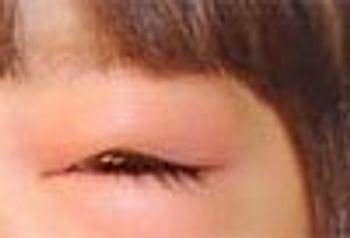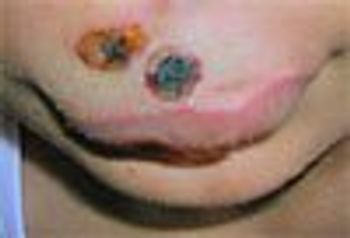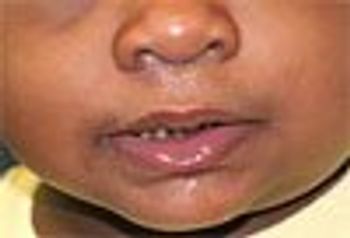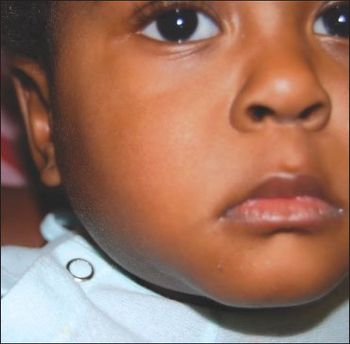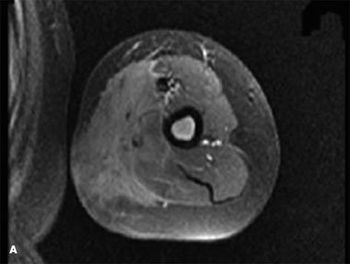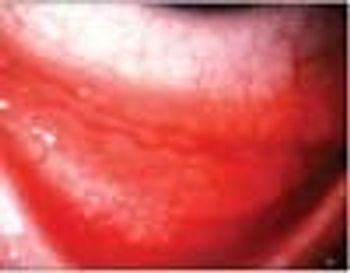
Five-year-old girl with redness and light sensitivity of the right eye of 2 days' duration. She denied any significant pain or decreased vision. She initially presented to an urgent care clinic, where application of polymyxin B/trimethoprim eye drops 4 times a day was prescribed.






